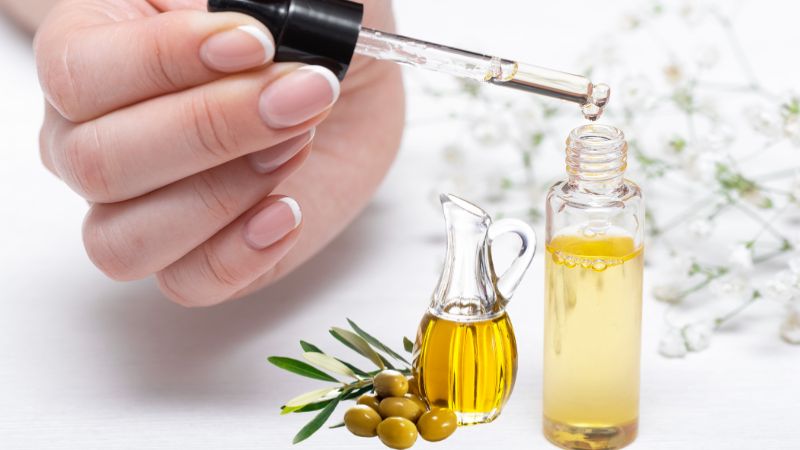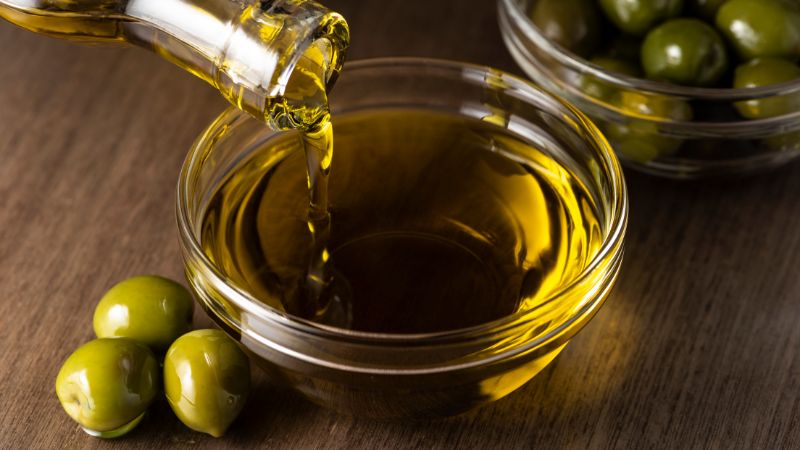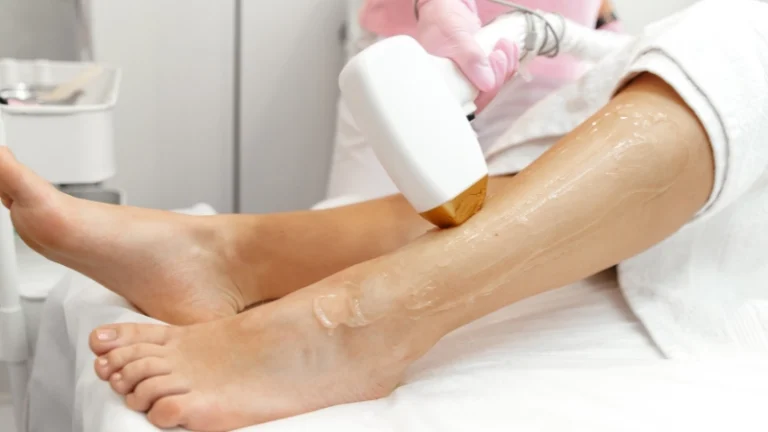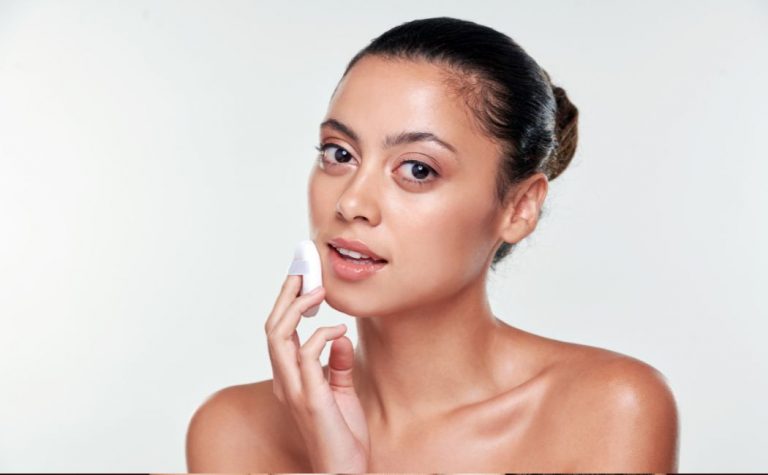Is Olive Oil Good For Skin?
Olive oil is frequently praised as a natural skin miracle worker. For those looking for an anti-aging treatment, its antioxidant qualities make it a fantastic option, and for those looking for a moisturiser, its moisturising qualities make it a perfect choice.
According to research, olive oil can help shield the skin from UV radiation’s harmful effects. Psoriasis and eczema are two other skin disorders that can be effectively treated with it.
So, if you’re looking for a natural way to improve your skin’s health, olive oil may be the answer. Just remember to use it in moderation, as too much of any good thing can eventually lead to problems.
Can Olive Oil Tighten Skin?
As we age, our skin begins to lose its elasticity and firmness. This can be due to a number of factors, including sun damage, gravity, and even the natural aging process.
While there’s no magic bullet that can totally reverse the signs of aging, some people believe that olive oil can help to tighten and tone the skin.
There’s no scientific evidence to support this claim, but some people swear by it. If you’re interested in trying olive oil as a skin-tightening treatment, it’s easy to do at home.
Simply spend a few minutes every day massaging a little bit of olive oil into your skin. Attempt using it as a facial mask as well: Olive oil can be applied to the face and left on for 15 to 20 minutes before being washed off.
There are several cosmetic procedures that can help if you want to tighten your skin more quickly.
These include laser treatments, radio frequency therapy, and even surgery. Talk to your doctor about which option is right for you.
How To Use Olive Oil For Glowing Skin?
There are a lot of benefits to using olive oil for your skin, including its ability to moisturize and protect your skin.
Additionally, it might aid in lessening the visibility of wrinkles and fine lines. Plus, olive oil is packed with antioxidants that can help to improve the overall health of your skin.
To use olive oil for glowing skin, simply massage a small amount into your face and neck after cleansing. You can also add a few drops to your bathtub for a relaxing and luxurious experience.
For best results, use olive oil regularly as part of your skincare routine and also use a high-quality olive oil that is cold-pressed and organic.

Is It OK To Put Olive Oil On Your Face?
Yes, you can put olive oil on your face! In fact, many people do it as part of their regular skincare routine.
There are many benefits to using olive oil on your skin, including:
So go ahead and give it a try! You may just find that olive oil is the secret to getting perfect skin.
How To Use Olive Oil On Face For Oily Skin?
If your skin is on the oily side, you might be wondering if olive oil is a good choice for your skincare routine. After all, oil is oil, right?
Wrong!
Despite what you may think, using olive oil on your face can actually do wonders for oily skin. In fact, it can help to regulate sebum production, unclog pores, and even fight acne-causing bacteria.
How to apply olive oil on your face for oily skin is shown below:
Olive oil is a simple and affordable solution to help greasy skin look better.
Which Olive Oil Is Good For Skin?
There are many olive oil brands on the market, and it can be hard to know which one is best for your skin. However, there are a few things you can look for when choosing an olive oil that will help ensure your skin stays healthy and hydrated.
When choosing an olive oil for your skin, make sure to select one that is cold-pressed and extra-virgin.
This type of olive oil has not been exposed to high temperatures or chemicals during the extraction process, so it retains more of its natural nutrients. These nutrients are beneficial for your skin, as they help to keep it hydrated and protect it from damage.
In addition, look for an olive oil that has a high oleic acid content. This fatty acid is excellent for your skin, as it helps to lock in moisture and keep your skin supple.
Finally, make sure to select an olive oil that is light in texture. Heavier olive oils can be too greasy for some skin types, so a lighter oil will be less likely to clog pores and cause breakouts.
When used regularly, olive oil can help to keep your skin healthy and hydrated. Make sure to choose an oil that is best suited for your individual skin type in order to get the most benefit from it.
Can Olive Oil Damage Your Skin?
Some people believe that olive oil can actually damage your skin. While it is true that olive oil can clog pores, it is unlikely to cause any lasting damage. In fact, many people use olive oil as a natural remedy for dry skin.
While it may provide some benefits, it can also cause damage. Olive oil is a natural source of oleic acid, which can be irritating to the skin. It can also clog pores and lead to acne.
If you have sensitive skin, olive oil may not be the best choice for you. There are other oils that can provide similar benefits without the risk of irritation. Ask your dermatologist which oil is right for you.
Benefits Of Olive Oil:
Olive oil has been used for centuries as a cooking oil, medicine, and even as a beauty treatment. But what are the real benefits of olive oil?
Here are some of the top benefits of olive oil:

Side Effects Of Olive Oil:
It’s no secret that olive oil is packed with health benefits. But like anything else, too much of a good thing can be a bad thing. Here are some side effects of olive oil to be aware of:
Olive oil is a natural laxative, so consuming too much can cause diarrhea.
Olive oil relaxes the lower esophageal sphincter, which can lead to heartburn.
While olive oil is healthy, it is also high in calories. Consuming too much can lead to weight gain.
Some people are allergic to olive oil. Symptoms include hives, swelling, and difficulty breathing.
Olive oil can interact with certain medications, such as blood thinners and blood pressure medication. Be sure to talk to your doctor before consuming olive oil if you are taking any medications.
While olive oil has many health benefits, it’s important to be aware of the potential side effects. consume olive oil in moderation to avoid any adverse effects.
How To Apply Olive Oil On Face?
Would you like to moisturise your skin naturally? If so, olive oil might be the ideal remedy! Olive oil has a lot of good fats and antioxidants, but it can also keep your skin moisturised and silky.
You may easily apply olive oil to your face by massaging a small quantity into clean, wet skin. To increase the moisturising capacity of your preferred facial cream or lotion, you may also add a few drops of olive oil to it. Use extra virgin olive oil that hasn’t been refined or treated for the greatest outcomes.
If you’re concerned about olive oil making your skin greasy, don’t be! Once applied, the oil will quickly absorb into your skin, leaving it feeling soft, smooth, and healthy.
Which Is Better Coconut Oil Or Olive Oil For Skin?
When it comes to oils, there are a few that stand out as being particularly good for your skin. Coconut oil and olive oil are two of the most popular options, but which one is better?
There are a few things to consider when making this decision. First, what is your skin type? If you have dry or sensitive skin, then coconut oil may be the better option. Olive oil can be a bit drying for those with these skin types.
Second, what are your goals for using an oil on your skin? If you’re looking to hydrate and nourish your skin, then coconut oil is a great choice. If you’re looking to control oily skin or reduce wrinkles, then olive oil may be a better option.
Finally, it’s important to consider the quality of the oil you’re using. Make sure you’re using a pure, unrefined oil for the best results.
So, which is better? It really depends on your individual skin type and goals. However, both coconut oil and olive oil can be great choices for keeping your skin healthy and hydrated.
Does Olive Oil Cause Itchy Skin?
There’s no denying that olive oil is good for you. It’s packed with healthy fats and antioxidants that can do wonders for your health. But some people believe that olive oil can also cause itchy skin.
So, does olive oil really cause itchy skin? The short answer is: maybe. Some people may be allergic to olive oil, which can lead to itchiness and other skin irritation.
However, it’s also possible that the itchiness is caused by something else entirely, such as an underlying skin condition. If you’re experiencing itchiness after using olive oil, it’s best to consult a doctor or dermatologist to rule out any other potential causes.





